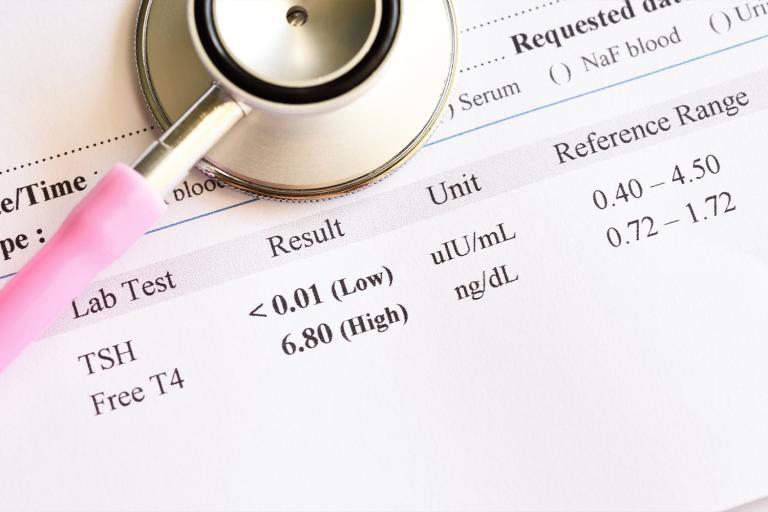I know that we all like to believe that we are who we are. We have a basic understanding of our personality, our strengths, weaknesses, and challenges—we take our self-identity for granted. I like to think of myself as an age-ripened wordsmith, equal parts scientific curiosity and creativity, who sleeps in too late, and really likes fine food and wine.
But what if I told you there is a magic elixir that could change all that just by adding—or subtracting—a few drops in your bloodstream? It can make the weak vigorous, the hard-working slothful, the optimist sad, the brilliant thinker confused, and the trim athlete bloated and slow. It can make the creative dull and the spontaneous sluggish. It can turn an owl into a lark and vice versa. It can give you self-confidence or fill you with doubts. That would be some pretty powerful stuff. And that is your thyroid hormone.
What Is the Thyroid Gland?
The thyroid gland is at the base of your neck, above your collarbone. It is often referred to as shaped like a butterfly, because there are two lobes on either side held together in the center by a slender piece of tissue.
The thyroid gland makes two major hormones called thyroxine (T4) and triiodothyronine (T3). These hormones dictate how efficiently your body converts fuel (the food we eat) into energy.
This is not just energy to run marathons and chase toddlers. This is energy for your brain cells to fire, your heart muscle to contract, your ovaries to release eggs, your hair shaft to grow and thicken, and so much more.
Did you know that around 60% of people with underactive thyroid also have many symptoms common to depression and are misdiagnosed? It has also been shown that about 60% of people with hyperthyroidism (too much thyroid hormone) have high levels of anxiety?
Thyroid hormone affects every cell in your body. And if you are pregnant, it affects every cell of your baby’s body, too, because they don’t start making thyroid hormones until after 20 weeks of gestation.
Unfortunately, many pregnant women are not making all the thyroid hormone they need. Maternal hypothyroidism affects about 2.5% of pregnant women in the US, and this condition can make them more prone to high blood pressure, pre-term babies, breech delivery, and even pregnancy loss. Even women with subclinical hypothyroidism during pregnancy can have 2 to 3 times greater risks of pregnancy complications compared to women with normal thyroid function.
There is no system in the body that is as dependent on one single nutrient as the thyroid gland. It needs iodine. Without iodine, the thyroid gland cannot make thyroid hormone. End of story. It also utilizes an aminol acid called L-tyrosine to make this important hormone, but the iodine is the heavy lifter.
And yet we have less and less iodine in our diet. Crops today contain about 50% less iodine than half a century ago. Our food is less nourishing. There is also a huge increase in exposure to chemicals that compete with iodine in the body: fluoride, chlorine, bromide and astatine. These chemicals are found in the water we drink, the flour we use to make baked goods, soft drinks, coffee filters and tea bags, toothpaste... the list goes even longer.
Increasing Thyroid Activity
There are two basic forms of thyroid dysfunction—either you are making too much thyroid hormone (hyperthyroidism) or too little (hypothyroidism). You don’t need levels low enough for a medical diagnosis to have it impact your health.
There is a great deal of interest in suboptimal thyroid function and its impact on health. That means that even little decreases can cause you a lot of distress.
If your mood is not the best, you are tired all the time, and you are gaining weight without changes in your diet, you may have suboptimal thyroid function. Other symptoms can be changes in your skin texture, hair loss or hair dryness, feeling cold all the time, and heavy, sometimes irregular, menstrual cycles.
Supplements for Thyroid Health
Increase Thyroid Activity with Iodine
It only makes sense that the most powerful way to increase thyroid hormone production is to use iodine. Many people point to salt as a source of iodine. Unfortunately, salt does not naturally contain much of this crucial mineral. Some salt is iodized, meaning iodine is added to the salt supplementally. This is done as a way to prevent goiter, which is iodine deficiency syndrome. Decades ago, public health experts were concerned about the many cases of goiter in America, especially in the Midwest. Therefore, they decided to add iodine to something that people eat every day—salt. Ironically, the chemical structure of salt is sodium chloride, and chloride competes with iodine in the body. Iodized salt helped address goiter, but is not useful in helping people with suboptimal thyroid function. Also, many people are eating healthier natural salts, like sea salt or Himalayan pink, which have many trace minerals but are not iodized.
Iodine comes in many forms, including potassium iodide, molecular iodine, and sodium iodide. All iodine provides benefits, but they work somewhat differently. For example, potassium iodide is what your thyroid gland likes best, and sodium iodide is the most soluble form, enhancing iodine absorption. Small amounts of molecular iodine are useful for breast and prostate tissue.
Healthcare practitioners often use a combination of forms in a “shotgun” approach, making sure all the iodine bases are covered.
There is a lot of debate on dosage levels. Some practitioners are quite conservative and use a half a milligram (mg), while others use dosages up to 30 mg and more.
Provide the Thyroid with the Hormone Building Blocks it Needs with L-Tyrosine
L-Tyrosine is an amino acid that is present in several foods, including poultry, fish, milk, yogurt, cheese, peanuts, almonds, pumpkin seeds, sesame seeds, soy and lima beans, bananas and avocados. Used in a supplement, it is combined with iodine to provide the thyroid with the building blocks it needs to make more thyroid hormone. Most dosage ranges are from 200 to 400 mg a day, depending upon individual needs
Selenium to Activate Thyroid Hormones
While selenium is not used specifically to make thyroid hormone, it is required to convert thyroid hormone form the storage to the active form. The optimal dosage is 100 to 300 mcg (that’s micrograms, not milligrams). I think the best form is derived from a natural yeast fermentation process.
Nutrients That Work Better Together
These nutrients often perform better together. It may take a few weeks to feel the difference, and you may need to experiment with dosages, but these nutrients can make a world of difference in your thyroid function—and your life!

